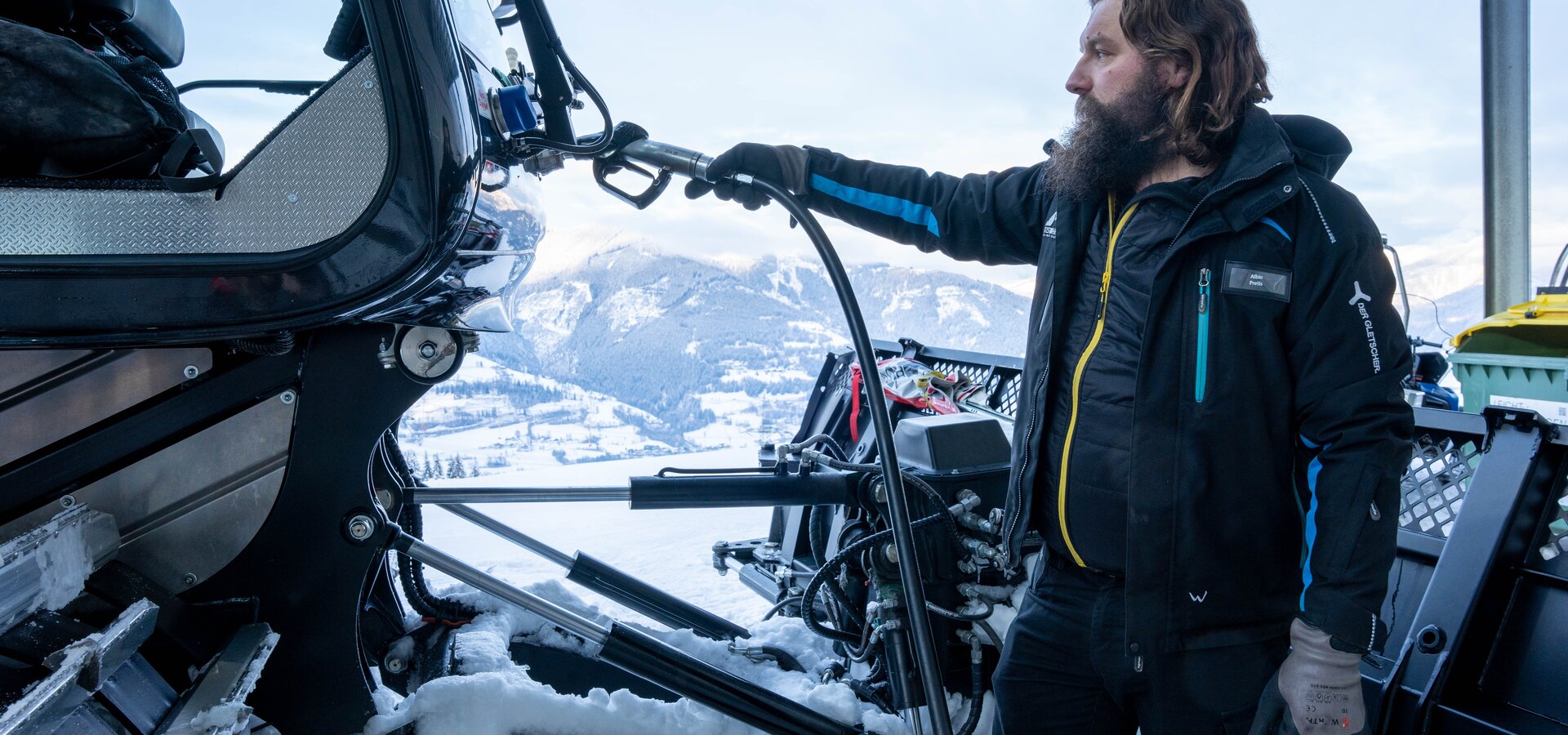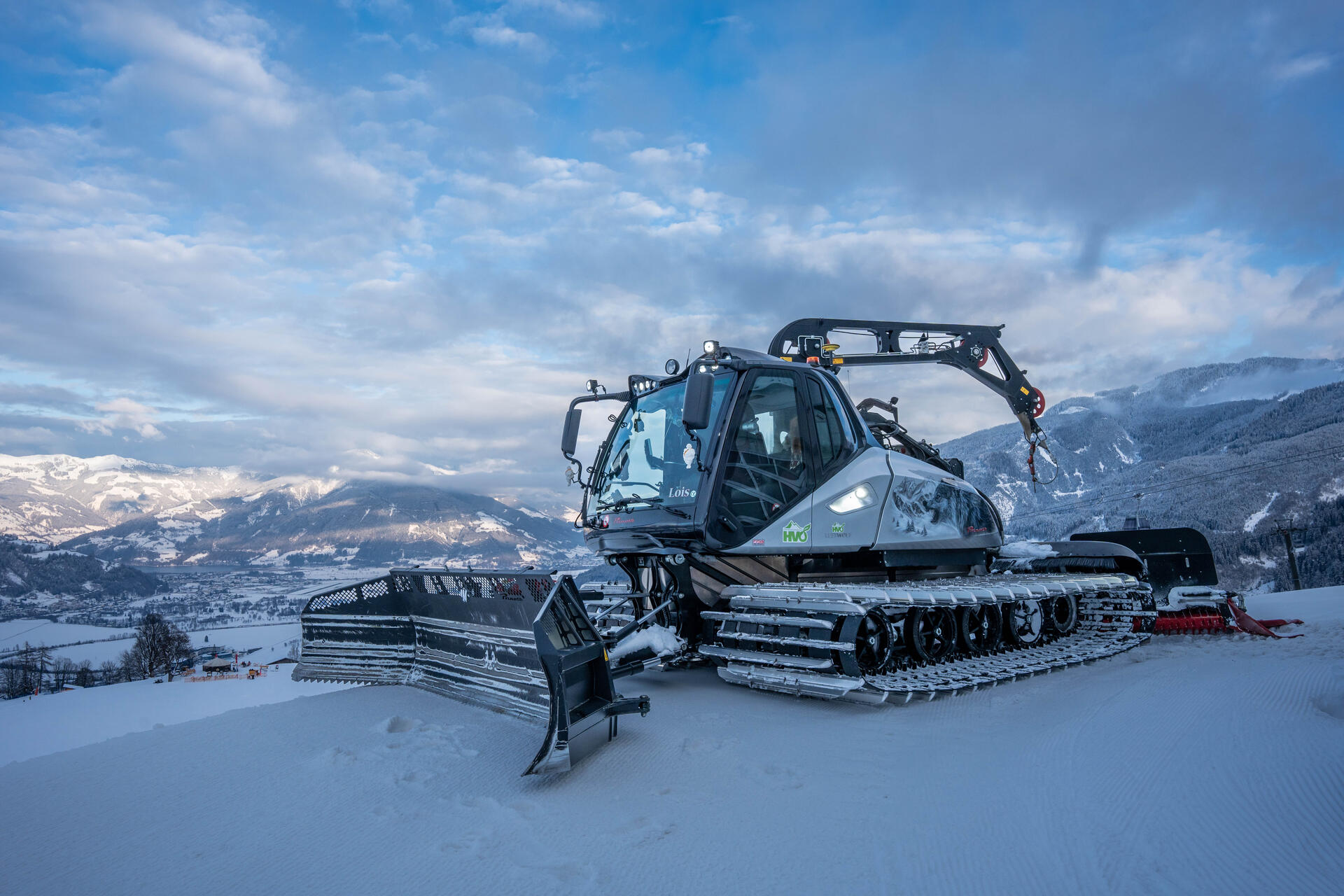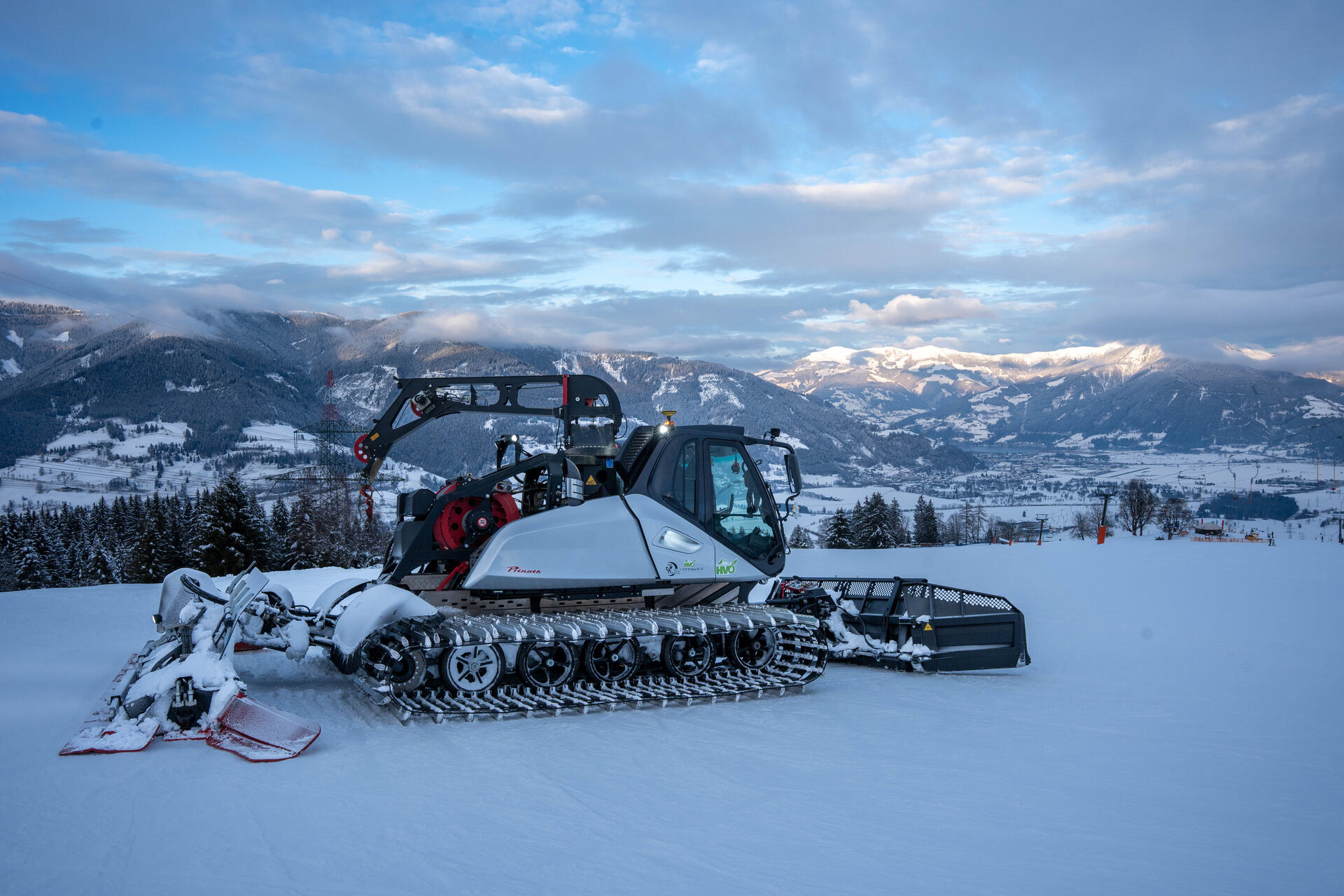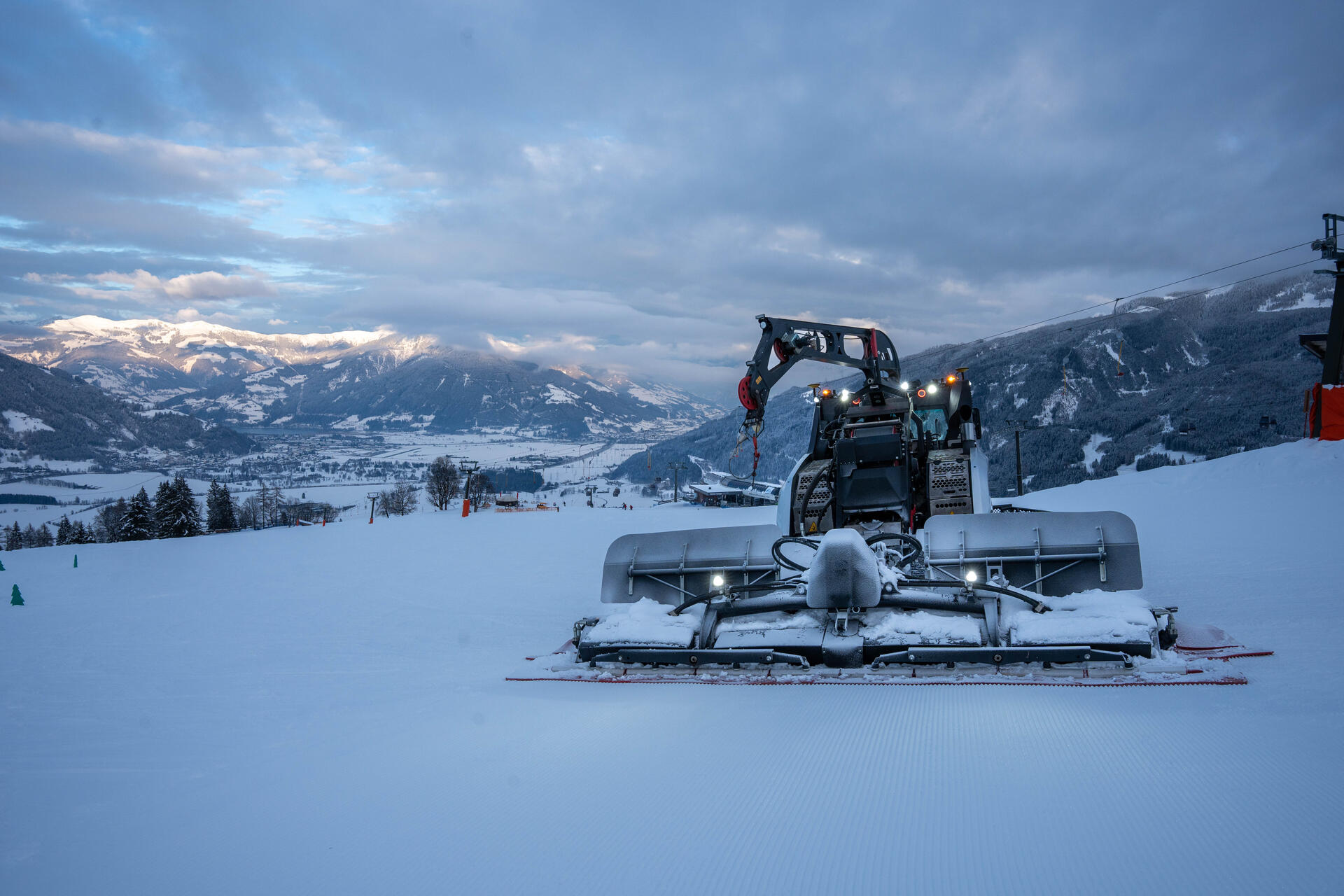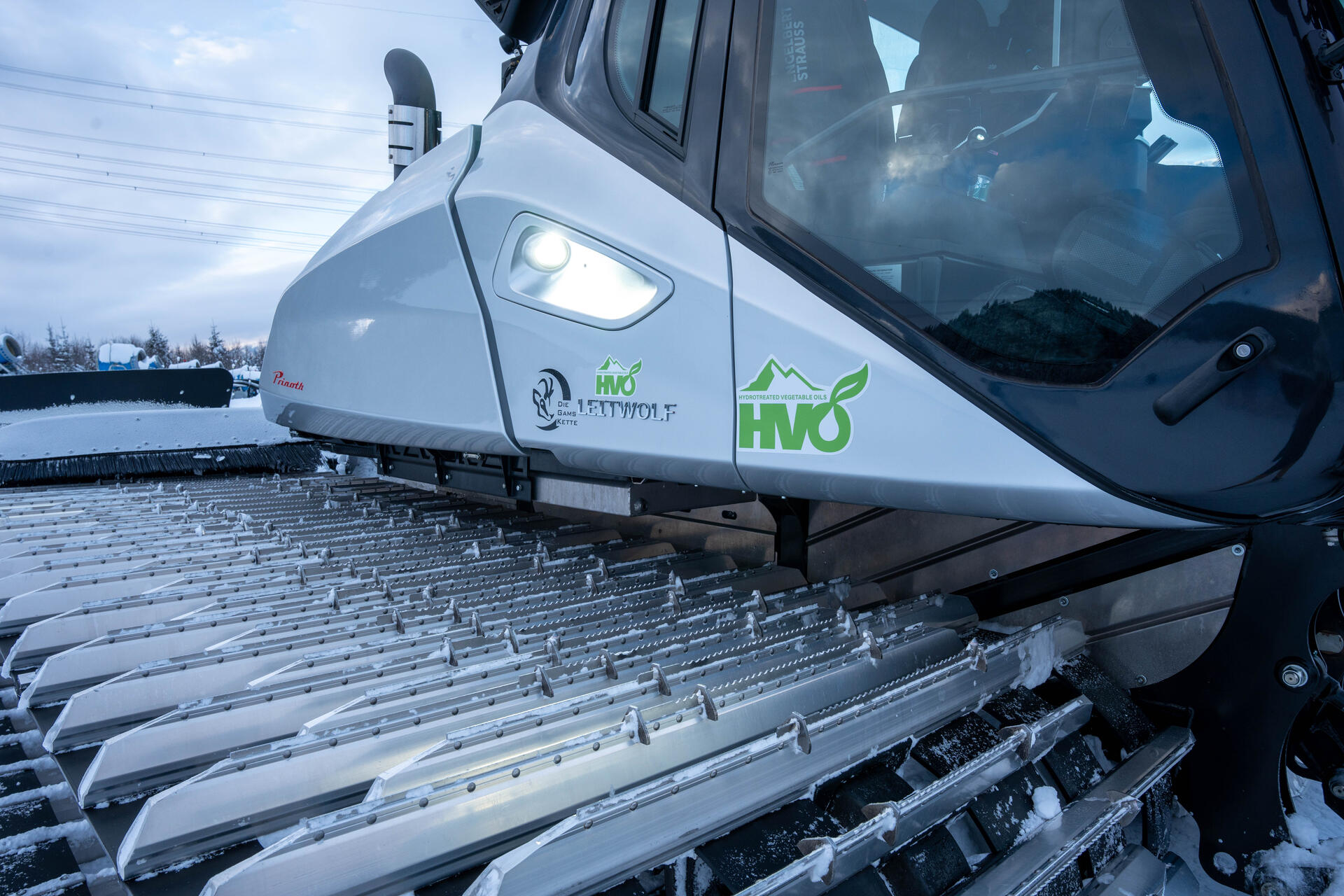Testing HVO fuel with snow groomers on the Maiskogel
HVO allows sustainable slope preparation. HVO stands for 'hydrotreated vegetable oil' and is made from organic waste materials, such as plant oils and animal fats. This fossil-free fuel replaces the diesel fuel used for all snow groomers on the Maiskogel mountain on a trial basis over the winter 2022/23.
We want to check how the trial of the environmentally-friendly, more expensive HVO fuel is going on the Maiskogel. During our ascent with the MK Maiskogelbahn cable car, we notice how perfectly groomed the slopes look. So, apparently, slope quality does not have to be sacrificed for HVO fuel. I meet Alois Kapeller at the snow groomer garage by the middle station.
The experienced snow groomer driver has been taking care of the slopes on the Maiskogel for many years. He can't deny his striking resemblance to Grizzly Adams, the man from the mountains. 'His' snow groomer features an airbrush picture of a wolf. "I had that made, 'cause, at the end of the day, I spend more time in the snow groomer than in my living room. So I want it to be nice and clean", signaling me with his raised bushy eyebrow to tap my boots to clear the snow before getting into the vehicle. 'His' is a high-tech Prinoth Leitwolf snow groomer and, this winter, it's fueled with HVO for the first time. He switches off the engine, jumps out of the cabin and fuels up the snow groomer at the company-owned fuel dispenser. "Nothing has changed. Nothing had to be upgraded or modified. HVO is more expensive than diesel, but for the company it's an investment in sustainability."
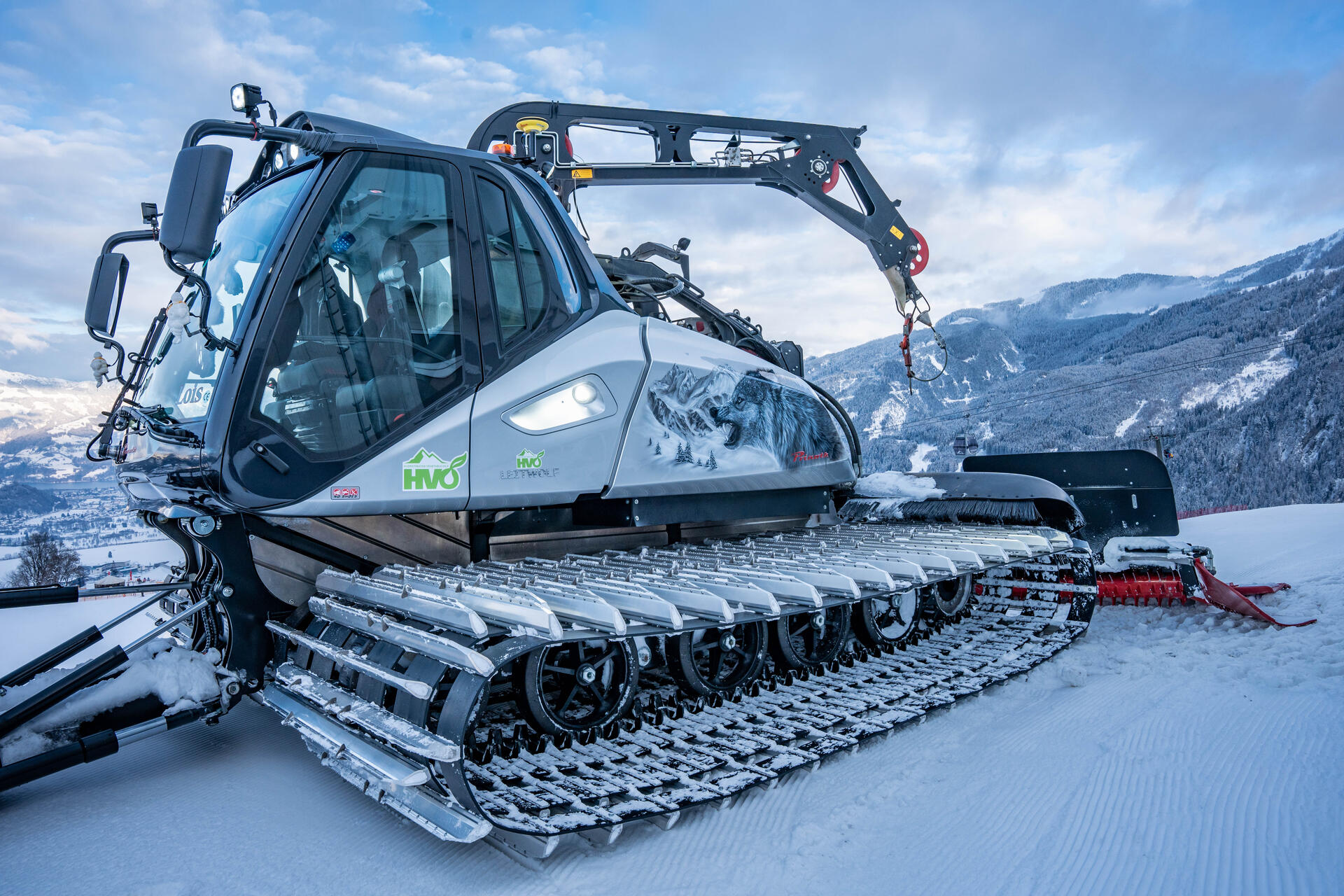
Odorless and clean
With a full tank, we set ourselves in motion. Alois takes me with him on his beginning night shift. We have no problem chatting in the cabin, for the engine's noise level is considerably reduced by the use of HVO fuel compared to diesel. "And what's also remarkable – HVO combusts odorless and clean", Alois explains, adding: "The trial of the new fuel is going great. On our daily slope preparation runs, emissions are noticeably cut while engine power remains the same. Two snow groomers are operated each night on the Maiskogel. The HVO fuel is compatible with all diesel engines with no need for upgrades or modifications. Just fuel up and get started, even if there's still diesel residue in the tank. There's no noticeable increase in consumption and HVO ensures high performance even with low temperatures."
Environmentally-friendly facts
While Alois maneuvers the snow groomer skillfully uphill and downhill transforming the terrain into flawless corduroy, I read up on HVO fuel. Its datasheet presents several environmentally-friendly facts: With this fossil-free fuel, carbon emissions are reduced by 90 percent, dust emissions by 33 percent, nitric oxide emissions by 9 percent, hydrocarbon emissions by 30 percent and carbon monoxide emissions by 24 percent.
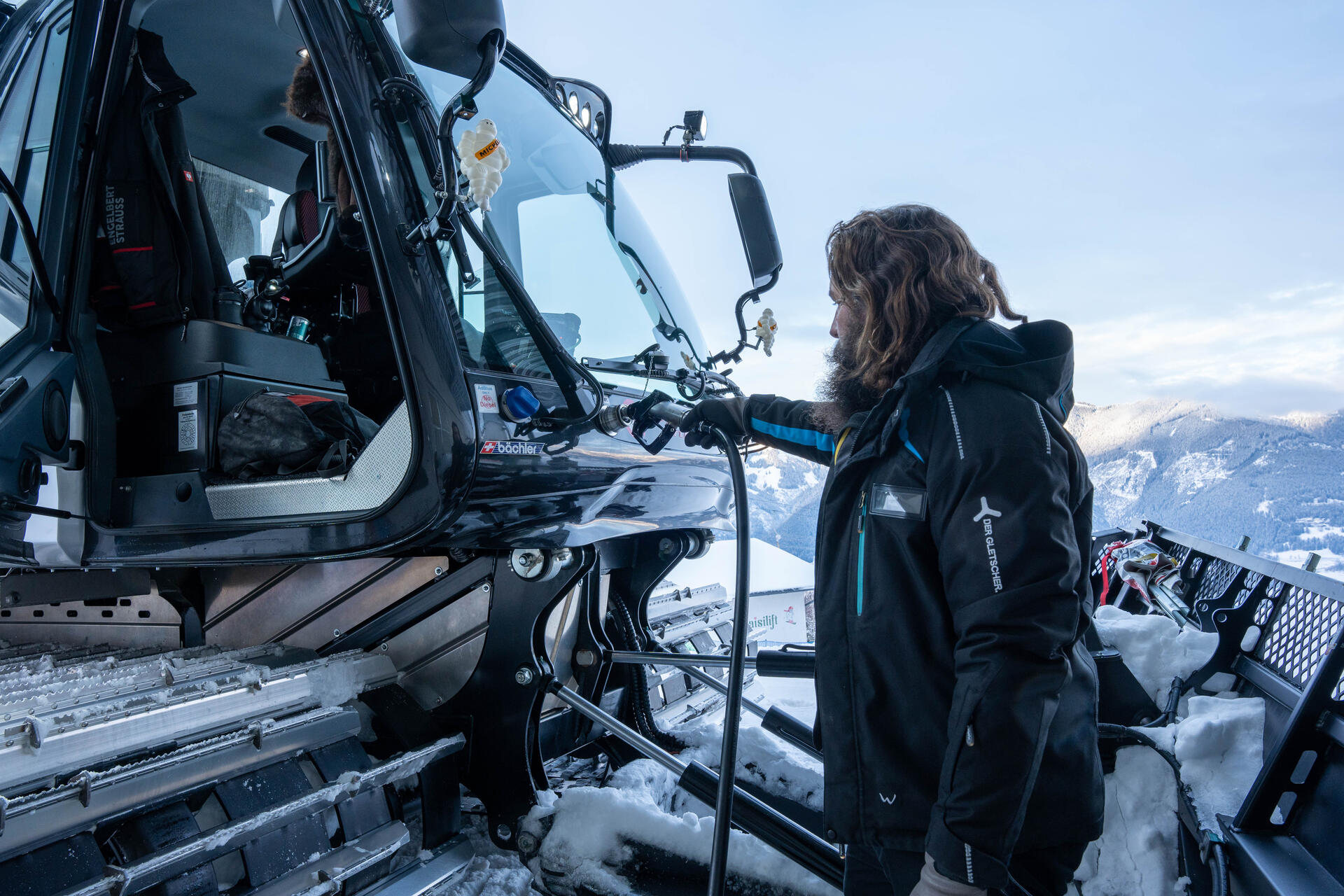
Up until now, the snow groomers left a clear carbon footprint within a company that has been making tremendous effort to act environmentally-friendly. The HVO100 renewable diesel made from waste plant oils and animal fats now enables the company to reduce this footprint by 90 percent. Alois is optimistic that the fossil-free fuel will prove to be a practical alternative to diesel and reports: "Everything has been going great so far. Knowing that we are contributing to reducing carbon emissions also soothes our own 'green' conscience as members of the slope preparation team. All cable cars in our ski resort run on electricity from 100 percent renewable sources. Our employer provides us with all-electric vans for carpooling to work and back home. And now, we can also reduce fossil fuel in slope preparation." Alois drops me at the valley station. Getting the slopes on the Maiskogel into perfect shape will take him another several hours. He is very passionate about his work: "I want to make sure slopes are impeccable, for amazing runs in the early morning", he says before closing the door of his cabin and driving off into the darkness.
Bye, diesel!
At the end of the season, trial results will be put under the microscope. If they are good, all company-owned heavy equipment will be converted from diesel into HVO despite extra costs – for the company considers organic HVO fuel as significant milestone for reaching Kitzsteinhorn's sustainability goals and considerably reducing its carbon footprint.

